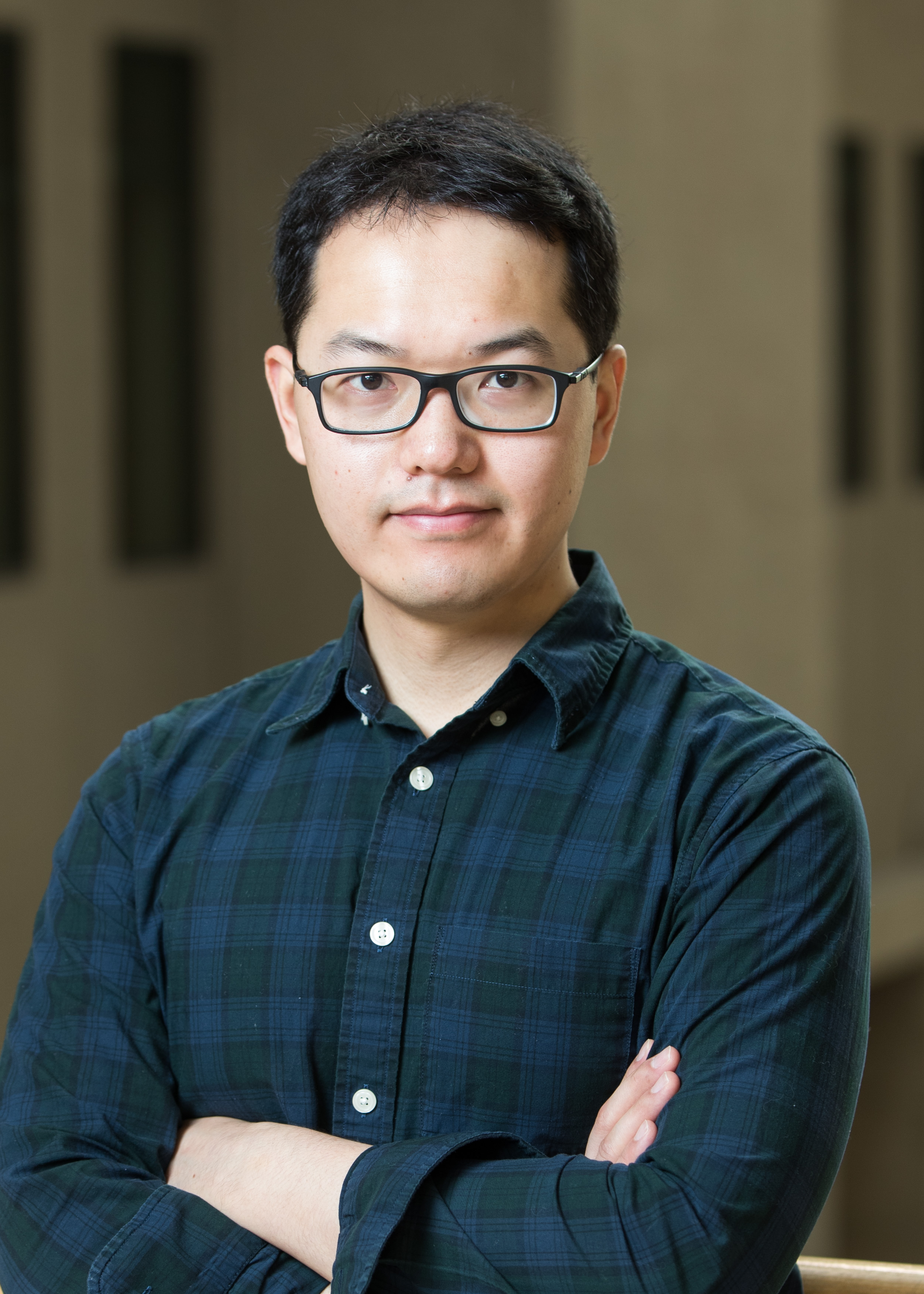
Dr. Jeff Dong BSc, PhD
Assistant Professor Biochemistry, Microbiology & Immunology- Address
- GD30.10, Health Sciences Building
Research Area(s)
- Macrophage behaviour in health and disease, neuroimmunology, oxidized phosphatidylcholines as mediators of tissue injury, multiple sclerosis, and aging.
About
Education:
PhD (2018), University of British Columbia, Department of Microbiology and ImmunologyBSc (2012), University of British Columbia, Department of Microbiology and Immunology
Postdoctoral Training:
2018-2022 University of Calgary, Department of Clinical Neurosciences
Our lab is interested in studying how macrophages regulate health and disease. Macrophages are primordial innate immune cells that help maintain tissue homeostasis and are one of the first responders to infection and injury. Tissue resident macrophages seed different organs during development and they tend to be long-living and self-renewing cells. Microglia are the tissue resident macrophages of the central nervous system (CNS) and they are predominant immune cells that populate the brain and spinal cord. In addition to performing a number of custodial functions, microglia can quickly react against injury and accumulate to pathological sites, such as multiple sclerosis (MS) lesions. Moreover, aging can impair the functions of these cells and their dysregulation could contribute to accelerated deteriorations. Thus, our lab will focus on studying how microglia regulate inflammation, repair, and fibrosis in the CNS across different ages. Our long term goal is to understand how the behaviours macrophages like microglia impact homeostasis, disease, and aging. Using in vitro, in vivo, and translational approaches, we will discover new approaches to improve the health and wellbeing of both humans and animals.
Oxidized phosphatidylcholines (OxPC) form when free radicals released during inflammation or tissue injury cause normal phosphatidylcholine found in cell membrane or in myelin sheaths to undergo peroxidation. OxPC are inflammatory, cytotoxic, and are implicated to promote tissue pathology in multiple diseases such as lung fibrosis, fatty liver disease, atherosclerosis, and MS. Macrophages like microglia are phagocytic cells capable of scavenging OxPC through cell surface receptors such as TREM2. By studying the OxPC binding and signaling mechanisms in macrophages and microglia, our lab will aim to identify new pathways that could be utilized to improve OxPC neutralization by macrophages and microglia. Our lab will also study how OxPC promote toxicity in neuroglial cells and how these harmful molecules are processed metabolically. In the long term, our goal is to develop therapeutics to eliminate OxPCs during injury and disease.
Recent Publications
- Dong Y, Jain RW, Lozinski B, D’Mello C, Visser F, Ghorbani S, Zandee S, Brown DI, Prat A, Xue MZ, Yong VW. Single cell and spatial RNA sequencing identify perturbators of microglia functions with ageing. Nature Aging. (2022). doi.org/10.1038/s43587-022-00205-z
- Moezzi D*, Dong Y*, Jain RW, Lozinski BM, Ghorbani S, D’Mello C, Yong VW. Expression of antioxidant enzymes in lesions of multiple sclerosis and its models. Scientific Reports. 12, 12761 (2022). *Joint first author
- Dong Y, Yong VW. Oxidized phospholipids as novel mediators of neurodegeneration. Trends in Neurosciences. (2022). 10.1016/j.tins.2022.03.002
- Ghorbani S, Jelinek E, Jain RW, Buehner B, Li C, Lozinski B, Sarkar S, Kaushik D, Dong Y, Wight T, Karimi-Abdolrezaee S, Schenk G, Strijbis E, Geurts J, Zhang P, Ling CC, Yong VW. Versican promotes T helper 17 cytotoxic inflammation and impedes oligodendrocyte precursor cell remyelination. Nature Communications. 13, 2445 (2022).
- Dong Y, D’Mello C, Pinsky W, Lozinski BM, Kaushik DK, Ghorbani S, Moezzi D, Brown D, Melo FC, Zandee S, Vo T, Prat A, Whitehead SN, Yong VW. Oxidized phosphatidylcholines found in multiple sclerosis lesions mediate neurodegeneration and are neutralized by microglia. Nature Neuroscience. 24, 489-503 (2021).
- Dong Y, Lozinski B, Silva C, Yong VW. Studying the microglia response to oxidized phosphatidylcholine in cell culture and in the mouse spinal cord. STAR Protocols. 2, 100853 (2021).
- Dong Y, Arif AA, Guo J, Ha Z, Lee-Sayer SSM, Poon GFT, Dosanjh M, Roskelley C, Huan T, Johnson P. CD44 loss disrupts lung lipid surfactant homeostasis and exacerbates oxidized lipid-induced lung inflammation. Frontiers in Immunology. 10.3389/fimmu.2020.00029 (2020).
- Dong Y, Yong VW. When encephalitogenic T cells collaborate with microglia in multiple sclerosis. Nature Reviews Neurology. 15, 704–717 (2019).
- Dong Y, Poon GF, Arif A, Lee-Sayer SSM., Dosanjh M, Johnson P. The survival of fetal and bone marrow monocyte-derived alveolar macrophages is promoted by CD44 and its interaction with hyaluronan. Mucosal Immunology. 11:601-614 (2017).
- Dong Y, Arif AA, Olsson M, Cali V, Hardman B, Dosanjh M, Lauer M, Midura RJ, Hascall VC, Brown KL, Johnson P. Endotoxin free hyaluronan and hyaluronan fragments do not stimulate TNF-alpha, interleukin-12 or upregulate co-stimulatory molecules in dendritic cells or macrophages. Scientific Reports. 6:36928 (2016).
